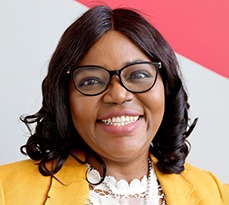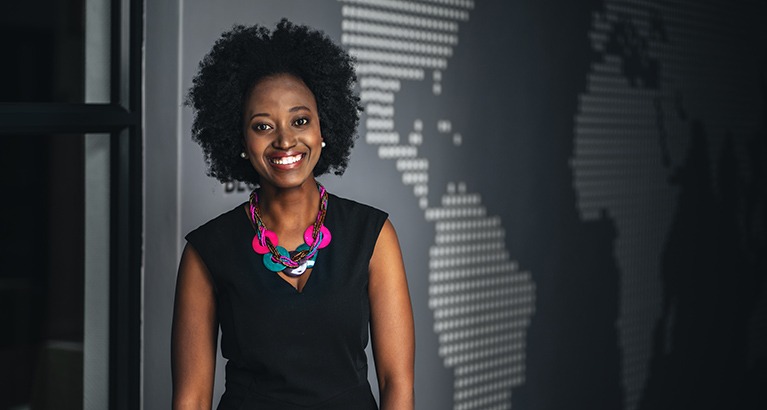
In the words of leadership expert Dr Timothy Clark – author of ‘The 4 Stages of Psychological Safety’ – psychological safety is “a condition in which one feels included, safe to learn, safe to contribute and safe to challenge the status quo – all without fear of being embarrassed, marginalised, or punished.” It means feeling free to ask questions, speak up, take risks, and brainstorm ideas – and it can have a huge impact on businesses as a whole.
But there’s a concerning lack of it. In 2019, a US report by Gallup found that only 3 in 10 employees strongly agreed their opinions counted in the workplace, while only 13% said they believed their organisation’s leadership communicated effectively. A survey by research firm Catalyst meanwhile found that nearly 50% of female business leaders found it hard to speak up in virtual meetings, while one in 5 said they felt overlooked or ignored in video calls.
The negative impact this can have on both businesses and their teams is substantial, according to leadership development consultant and coach Dr Jummy Okoya. “Employees who don’t feel they can speak up, contribute ideas to the project and achieve team goals can feel a lack of belonging,” she says. “Frustration can lead to higher levels of conflict and higher staff turnover.”
On the flipside, psychologically safe environments have been shown to boost productivity and innovation, in turn benefitting the bottom line. A research study by the Creative Center for Leadership found that teams who felt psychologically safe reported increased performance and lower levels of interpersonal conflict, while Accenture reported that businesses with a higher degree of psychological safety benefitted from a 27% reduction in turnover, 76% more engagement and 74% less stress among employees.
It’s little wonder leading firms such as Google, Microsoft and Gartner have pointed to psychological safety as fundamental in unleashing their team’s potential. But how can leaders combat these challenges and create an open, questioning culture that encourages employees to have their say?
1
Show vulnerability
First and foremost, it’s essential that leaders are able to show their own vulnerability if they’re to encourage a culture of taking risks and owning mistakes, says Okoya.
“According to Brene Brown, inspired leadership requires vulnerability,” she says. “Leaders can role model psychological safety and promote inclusive meetings by amplifying different voices and having the courage to ask for help and own their mistakes,” she says.
“Leaders should also ensure their colleagues feel recognised and valued in order to promote belonging. Have the humility to ask team members what they need to be successful and create an environment that encourages speaking up.”
2
Don’t blame and shame
If leaders want to encourage risk taking, it’s also crucial to eradicate any blame or shame culture; unsurprisingly, research by John Gottman at the University of Washington found that blame and criticism can lead to conflict, defensiveness and disengagement.
“Avoid blaming, scapegoating or shaming,” says Okoya. “To encourage innovative thinking, remind team members about the importance of risk taking and celebrate wins when the risks pay off. It’s also important that leaders share their failure and how they learnt from it. Failure is part of success, not the opposite.”
3
Create time for reflection and ask for feedback
Another keyway to develop psychological safety is to reflect on your own performance as a leader and take feedback from others, says Okoya.
“It’s important to be willing to stop and reflect on how you’re doing,” she says. “Working in sprints or small bursts with planned pauses for reflection builds the habit of continually inspecting the way we work. Also, ask for feedback to illuminate your own blind spots and help ensure your colleagues feel like they’re being heard.”
4
Arrange brainstorming sessions
Brainstorming sessions can be another way to encourage team members to speak up and share constructive feedback. “Experimentation is essential for leaders,” says Okoya. “Promote ideas sharing sessions to find solutions to a problem but be sensitive to cultural differences and how that might show up in how members engage in meetings.
“Use questioning to generate contribution and ask, ‘what if’ questions,” she continues. “The Dean of my school always starts our monthly Dean’s briefing by inviting questions and encouraging team members to challenge his ideas and share examples of what worked well and what didn’t. We are encouraged to share our failures – not trying anything at all is considered a failure. We also had an anonymous mailbox to allow colleagues to offer suggestions and disagree with anything.”
5
Approach conflict in the right way
Conflict doesn’t have to be bad – psychological safety is all about allowing for disagreements without judgement, and capitalising on diversity of thought.
“Resolve conflict in a collaborative, productive way, and not as an adversary,” says Okoya. “Building an effective balance of productive discomfort and safety requires constant practice and vigilance. It’s crucial to adopt a learning mindset and be open-minded, resilient, motivated and persistent,” she says.
“Humour, solution-finding and divergent thinking are key to unleashing creativity. Once these habits are built and solidified in individual and team behaviour, teams will be able to make progress against extraordinary outcomes – and their organisations will feel the benefits.”
Psychological safety and the Cambridge MBA

Shamiso Barnett, Head of the Cambridge MBA programme at the University of Cambridge, tells us how the Cambridge MBA is designed to encourage a culture of psychological safety in future business leaders.
“Diversity of thought is crucial on the Cambridge MBA. We teach students to speak up and foster an environment which allows others to have a voice, and we want this to reflect in their leadership style when they graduate. Our core classes are structured in seminar rather than lecture style to encourage open discussion and debate.
“Students are meant to learn from each other, question the theoretical context and review alternative aspects in all they do. We bolster this learning with hands-on MBA workshops, like the Leadership Series with guest speakers like Dr Jummy Okoya, to offer practical skills and takeaways that can be applied when students return to the workplace.
“Feeling confident enough to speak up and voice opinions in the workplace is essential in today’s world. The business sector operates in a global context, and we want to encourage diversity of thought in future leaders and employees in order to build an inclusive work culture.”





